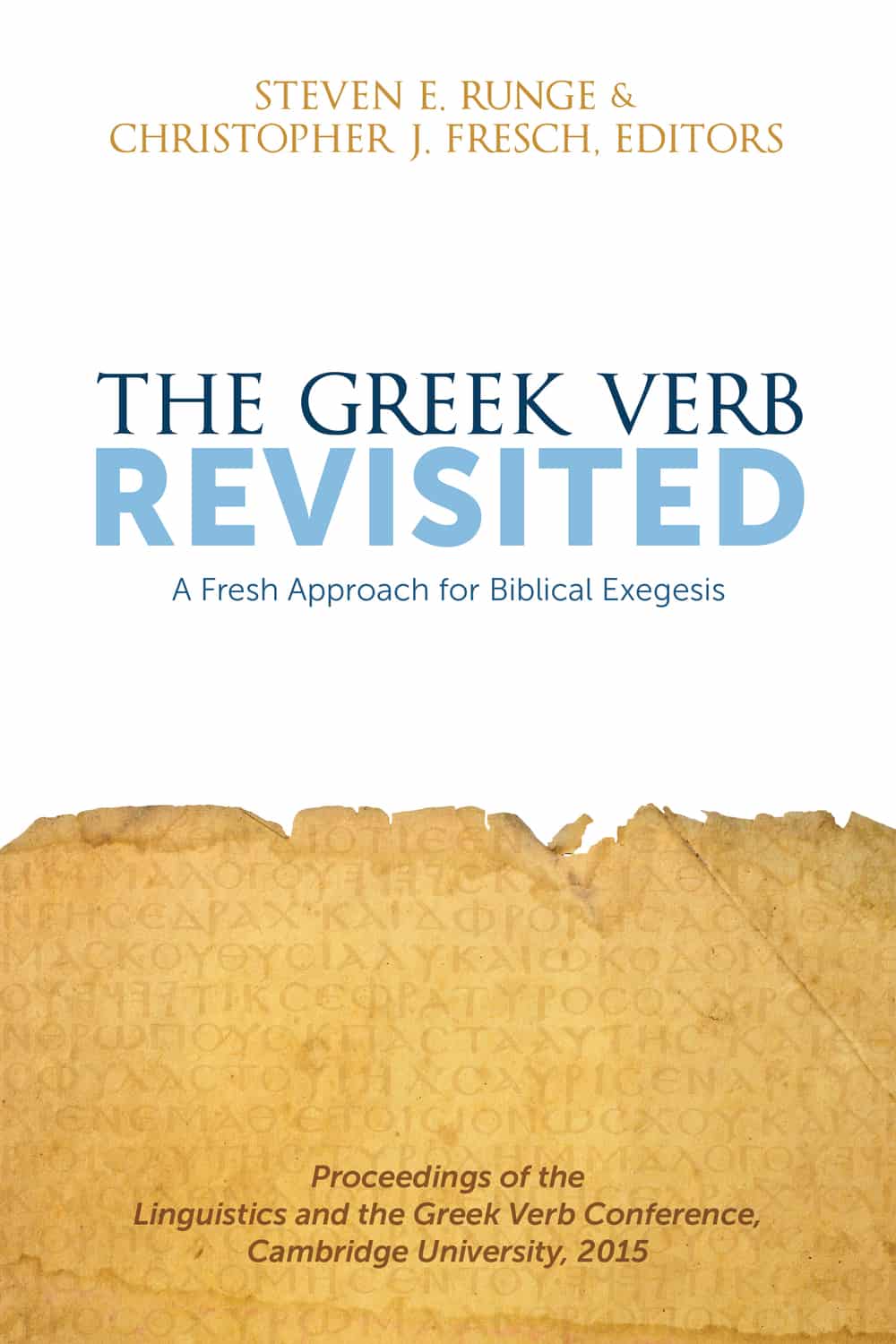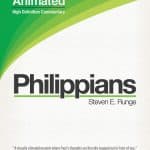
We?d like to bring your attention to a very important conference that is taking place today and tomorrow. Sponsored by Lexham Press and Faithlife, Linguistics & the Greek Verb is bringing scholars from around the world to Tyndale House, Cambridge, where they?ll examine recent developments from the field of linguistics, which may dramatically shift the direction of the discussion surrounding the Greek verbal system.
Over the past two decades, there has been no small debate within New Testament scholarship about the nature of the Greek verbal system. But the discussion has become entrenched and difficult to break into.
This conference hopes to help remedy this by bringing together New Testament scholars, Greek linguists, and Classicists to discuss the ancient Greek verbal system and to explore detailed linguistic questions about it. The conference aims to move past stalemates by working through real examples with attendees in workshop settings.
Learn about the background story behind the Linguistics & the Greek Verb conference on this blog post by Christopher Fresch.
The conference proceedings are being compiled by Steve Runge and Christopher Fresch into a book that will provide readers with an accessible introduction to the foundational issues and offer a way forward through the debate.
The Greek Verb Revisited: A Fresh Approach for Biblical Exegesis is a practical and accessible overview of the Greek verb that moves beyond the current impasse by taking into account the latest scholarship from the fields of linguistics, Classics, and New Testament studies.
Because the conference is currently under way, the contents of this book may change slightly, but here are the planned contributions:
- ?Conclusions and Open Issues? by Geoffrey Horrocks
- ?Porter and Fanning on NT Greek Verbal Aspect: Retrospect and Prospect? (Contributor TBA)
- ?Tense-aspect in Classical Greek: Some Historical Developments? (Contributor TBA)
- ?Aspect-Prominence, Morpho-Syntax, and a Cognitive Framework for the Greek Verb? (Contributor TBA)
- ?What is Aspect? Contrasting Definitions in Linguistics and New Testament Studies? (Contributor TBA)
- ?Verb Forms and Grounding in Narrative? by Stephen Levinsohn
- ?Functions of Copula-Participle Combinations? by Stephen Levinsohn
- ?Imperfects, Aorists, Perfects, and Historic Presents in John 11: A Narrative Test Case? by Patrick James
- ?The Historical Present in NT Greek: An Exercise in Interpreting Matthew? (Contributor TBA)
- ?The Contribution of Verb Forms, Connectives and Dependency to Grounding Status in Non-Narrative Discourse? by Steve Runge
- ?Determining Grounding Status in Non-Narrative Discourse: A Test Case from 1 Peter? (Contributor TBA)
- ?Participles as a Pragmatic Choice? (Contributor TBA)
- ?Perfect Greek Morphology and Pedagogy: Their Contribution to Understanding the Greek Perfect? (Contributor TBA)
- ?The Semantics of the Perfect in the Greek New Testament? (Contributor TBA)
- ?Typology, Polysemy, and Prototypes: Understanding Non-Past Aorist Indicatives? by Chris Fresch
- ?Function of the ?-Augment in Hellenistic Greek? by Peter Gentry
- ?Motivated Categories, Middle Voice, and Passive Morphology? by Rachel Aubrey
- ?Greek Imperatives: Categories, clausal semantics, and the gradience of grammatical contrasts? by Michael Aubrey
- ?On the Joys of the Imperfect: What does a NT specialist need to know about the Greek verb (from a Classicist?s point of view)?? (Contributor TBA)
- ?Tense and aspect after the New Testament: What does a NT specialist need to know about the Greek verb (from a Linguist?s point of view)?? by Amalia Moser
Pre-order The Greek Verb Revisited today!





